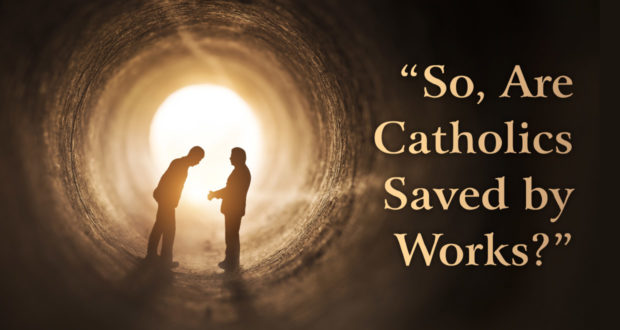Faith and Reason: The Catholic Approach to Truth

In an age marked by rapid advancements in science and technology, the relationship between faith and reason has become increasingly significant. For many, faith and reason may seem to be at odds, but in Catholic teaching, they are viewed as complementary pathways to understanding truth. The Catholic Church emphasizes that faith and reason work together, enriching one another and guiding believers toward a deeper understanding of God and His creation.
The Nature of Faith
Faith, in the Catholic context, is a profound trust in God and His revelation. It involves belief in the mysteries of faith as presented through Scripture and tradition. This trust is not blind; rather, it is an informed belief grounded in the teachings of the Church and the lived experiences of its members. The Catechism of the Catholic Church defines faith as “a gift of God, a supernatural virtue infused by Him” (CCC 153). This gift enables believers to accept the truths of God’s revelation, which transcends human understanding.
The Role of Reason
Reason, on the other hand, is the human capacity to think, understand, and make judgments. It allows individuals to explore the world, ask questions, and seek answers. The Church teaches that God has endowed humanity with the ability to reason, enabling us to comprehend the natural world and the moral order. St. Thomas Aquinas, a prominent theologian, famously stated that reason is a gift from God that helps us understand His creation and divine law.
Harmony Between Faith and Reason
Catholic doctrine asserts that faith and reason cannot be in conflict, as both originate from God. St. John Paul II, in his encyclical *Fides et Ratio* ("Faith and Reason"), emphasized the importance of this relationship, stating, “Faith and reason are like two wings on which the human spirit rises to the contemplation of truth.” This highlights the belief that faith enriches reason, and reason can lead us to a deeper understanding of faith.
Understanding Creation: Through reason, we can explore the wonders of the universe, discovering the laws of nature that govern it. The beauty and complexity of creation can lead us to contemplate the existence of a Creator. Many scientists and philosophers have recognized that their discoveries point to a greater truth—a divine intelligence behind the universe.
Moral and Ethical Questions: Catholic teaching holds that reason plays a crucial role in moral decision-making. The Church encourages the use of reason to discern right from wrong, guided by natural law. This law, rooted in human nature, provides a moral framework that complements divine revelation.
The Pursuit of Truth: The pursuit of truth is a fundamental aspect of the Catholic faith. The Church encourages dialogue and engagement with various fields of study, including philosophy, theology, and science. This openness fosters a deeper understanding of God’s truth and the complexities of human existence.
Faith Seeking Understanding
The Catholic tradition promotes the idea of "faith seeking understanding," which acknowledges that while faith is a gift from God, there is also a continual quest for deeper understanding. This journey involves studying Scripture, engaging with Church teachings, and seeking knowledge from various disciplines.
In practice, this means that Catholics are encouraged to ask questions, explore doubts, and seek answers. The Church does not shy away from intellectual inquiry but rather embraces it as a means to grow in faith.
Conclusion
The Catholic approach to truth harmonizes faith and reason, inviting believers to explore the depths of their faith while employing their God-given ability to reason. In a world where skepticism and doubt often prevail, the Church offers a path that encourages a deeper understanding of God, creation, and the moral order.
As we navigate the complexities of life, let us remember that faith and reason are not adversaries but companions on our journey toward truth. Through the integration of both, we can cultivate a richer and more meaningful relationship with God, deepening our understanding of the divine mysteries that shape our existence.
